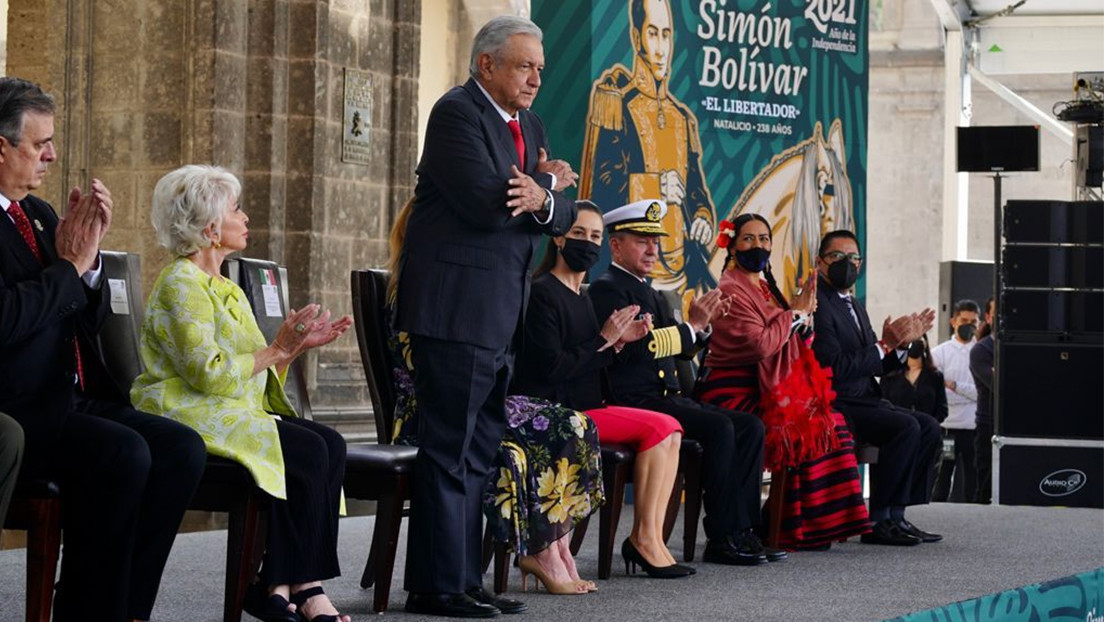RIO DE JANEIRO, BRAZIL – Mexico will promote, at the at the upcoming meeting of Celac heads of state, its proposal to “transform” the current Organization of American States (OAS) because currently the body “does not help anything,” said Mexico’s undersecretary for Latin America and the Caribbean, Maximiliano Reyes to Efe on Thursday (16).

“Mexico is going to formalize its proposal to transform the OAS. We are going to propose setting up a working group with the participation of several countries. From there, we will begin to make a diagnosis and analysis of the current situation of the OAS, with all seriousness and objectivity. We will build together a proposal of what we need,” the official of the Ministry of Foreign Affairs (SRE) explained to Efe.
The National Palace in Mexico City will host this Saturday the VI Summit of Heads of State and Government of the Community of Latin American and Caribbean States (CELAC), in which 16 heads of state, two vice presidents, and 14 foreign ministers have already confirmed their attendance, although more are expected.
Alberto Fernández (Argentina), Luis Arce (Bolivia), Miguel Díaz-Canel (Cuba), Guillermo Lasso (Ecuador), Carlos Alvarado (Costa Rica), Juan Orlando Hernández (Honduras), Pedro Castillo (Peru) and Luis Lacalle Pou (Uruguay) are some of the leaders who have confirmed their presence in Mexico, which holds the pro tempore Celac presidency.
Meanwhile, Venezuela -which has been holding a dialogue between the government and the opposition in Mexico since August- will be represented by Executive Vice President Delcy Rodríguez, Foreign Minister Félix Plasencia, and two deputy foreign ministers.
In addition, representatives of the Economic Commission for Latin America and the Caribbean (ECLAC) and Charles Michel, president of the European Council, will also be present.
RENEWING THE OAS
At the Celac foreign ministers’ meeting at the end of July, Mexican President Andrés Manuel López Obrador called for the creation in the region of “something similar” to the European Union (EU) and the replacement of the OAS, in statements that permeated the entire meeting.
“What we all agree on is that the current OAS, as it stands, does not help us at all. On the contrary, on many occasions, it hinders internal negotiations and also the harmonious coexistence between countries,” said Reyes.
Although he did not venture to determine whether a new organization will be created or only the existing one will be renewed: “I would only say that the OAS needs a transformation, whether it is a new organization or a reform of the current one, Mexico cannot say, because it has to come out of consensus.”
In this context, the undersecretary also spoke of the role of OAS Secretary General Luis Almagro, who has received strong criticism from him. “It is a reality that (Almagro) is not doing a service or a function that helps us, so the transformation we are proposing would have to have another governing body,” he remarked.
VACCINES, SPACE RACE, AND DISASTER
But beyond the OAS, this crucial regional meeting will also deal with other topics of great interest, such as the fight against pandemics, the space race, and the prevention and response to natural phenomena.
The previous meeting was marked by the eagerness to jointly combat the Covid-19 pandemic and the demand for a fairer distribution of vaccines from rich countries.
According to the undersecretary, an issue that will continue to be critical at Saturday’s summit is that a “work plan” will be presented to achieve “self-sufficiency” in vaccines. “That is, that we no longer depend on vaccines that are being produced in developed countries,” he stressed.
In addition, the constitution of the Latin American and Caribbean Space Agency (ALCE) will be formalized: “We consider it fundamental because it is the first step for Latin America and the Caribbean to participate in the space race.”
He indicated that this agency would enable the region to have its satellites in orbit too. For example, it would have “greater prevention” against natural phenomena, facilitate telematic services in medicine, or reduce mobile telephony and data costs.
In addition, a proposal will be promoted to bring to organizations such as the G20 or the United Nations the creation of a regional disaster fund, he remarked.
Several documents will be drawn upon these central issues and signed by all the countries to “get underway”.
DIPLOMACY FIRST AND FOREMOST
The first stage of López Obrador’s mandate as president was marked by a limited foreign policy that has taken a substantial turn in recent months.
Proof of this is this Saturday’s summit of Celac – an organization founded in 2011 by 33 Latin American and Caribbean countries – or the dialogues between the Venezuelan government and opposition that the nation is hosting.
According to Reyes, it is a matter of making Celac put first the challenges that “we face as a region,” such as migration, the climate crisis, or the coronavirus.
He stressed that “we need to agree because together we are stronger and let the ideological or political differences that some have to be settled in other forums and not divide the region.”

